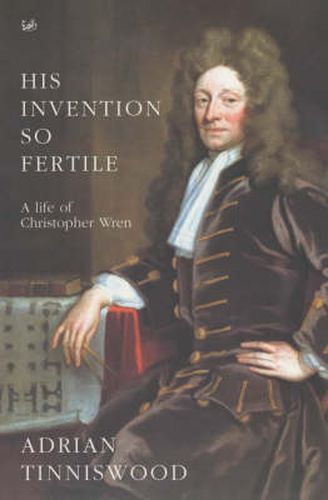Readings Newsletter
Become a Readings Member to make your shopping experience even easier.
Sign in or sign up for free!
You’re not far away from qualifying for FREE standard shipping within Australia
You’ve qualified for FREE standard shipping within Australia
The cart is loading…






Christopher Wren (1632-1723) was the greatest architect Britain has ever known. But he was more than that. A founder of the Royal Society, he mapped the moon and the stars, investigated the problem of longitude and the rings of Saturn, and carried out groundbreaking experiments into the circulation of the blood. His observations on comets, meteorology and muscular action made vital contributions to the developing ideas of Newton, Halley and Boyle. His Invention So Fertile presents the first complete picture of this towering genius: the Surveyor-General of the King’s Works, running the nation’s biggest architectural office and wrestling with corruption and interference; the pioneering anatomist; the mathematician, devising new navigational instruments and lecturing on planetary motion. It also shows us the man behind the legend. Wren was married and widowed twice, he fathered a mentally handicapped child, quarrelled with his colleagues and fell foul of his employers. He scrambled over building sites and went to the theatre and drank in coffee-houses. The book explores what it was like to be at Oxford during the Commonwealth, as a generation struggled to make sense of a society in chaos; it recreates the tensions which tore apart the court of James II; it brings to life the petty jealousies that formed an integral part of both the building world and scientific milieu of the Royal Society. Above all, His Invention So Fertile makes clear to the general reader and the art historian just why Wren remains a cultural icon - both a creation and a creator of the world he lived in.
$9.00 standard shipping within Australia
FREE standard shipping within Australia for orders over $100.00
Express & International shipping calculated at checkout
Christopher Wren (1632-1723) was the greatest architect Britain has ever known. But he was more than that. A founder of the Royal Society, he mapped the moon and the stars, investigated the problem of longitude and the rings of Saturn, and carried out groundbreaking experiments into the circulation of the blood. His observations on comets, meteorology and muscular action made vital contributions to the developing ideas of Newton, Halley and Boyle. His Invention So Fertile presents the first complete picture of this towering genius: the Surveyor-General of the King’s Works, running the nation’s biggest architectural office and wrestling with corruption and interference; the pioneering anatomist; the mathematician, devising new navigational instruments and lecturing on planetary motion. It also shows us the man behind the legend. Wren was married and widowed twice, he fathered a mentally handicapped child, quarrelled with his colleagues and fell foul of his employers. He scrambled over building sites and went to the theatre and drank in coffee-houses. The book explores what it was like to be at Oxford during the Commonwealth, as a generation struggled to make sense of a society in chaos; it recreates the tensions which tore apart the court of James II; it brings to life the petty jealousies that formed an integral part of both the building world and scientific milieu of the Royal Society. Above all, His Invention So Fertile makes clear to the general reader and the art historian just why Wren remains a cultural icon - both a creation and a creator of the world he lived in.